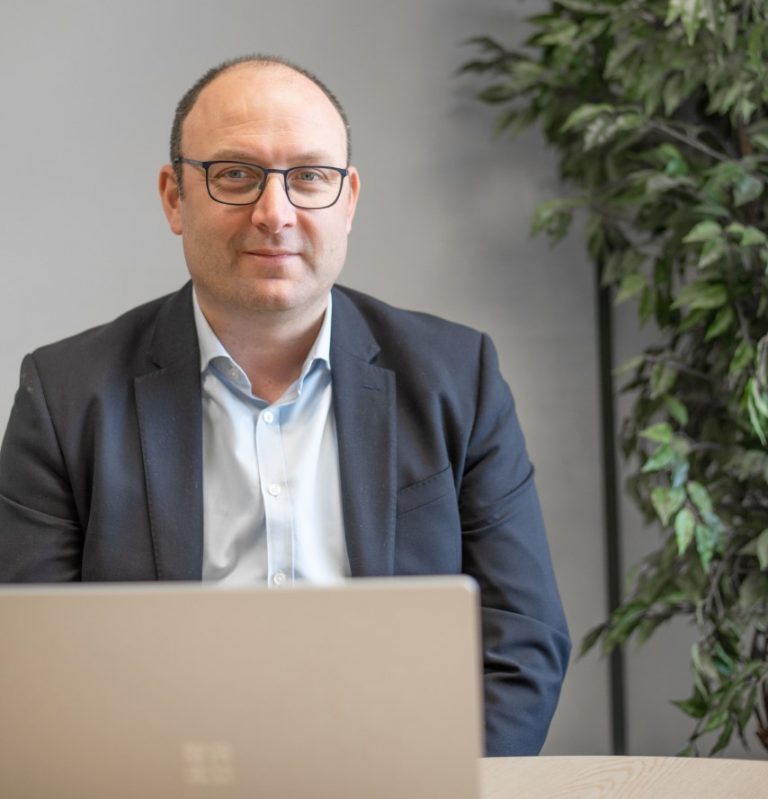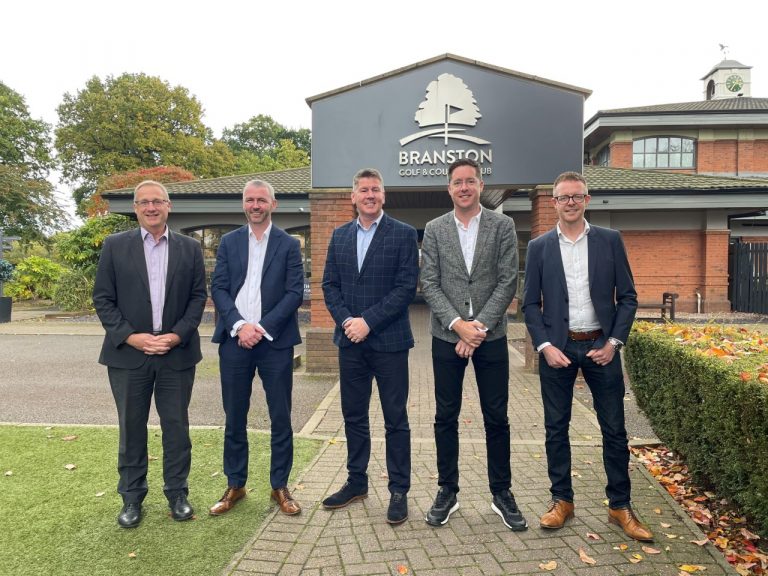Third annual survey highlights challenges facing SMEs
Gateley hails “strong” six months
The board of Gateley, the legal and professional services group, is “pleased with the strong performance” of the group in the six months ended 31 October 2022.
According to a trading update ahead of Gateley’s half year results, revenue has grown by 22% and is expected to be not less than £76 million.Underlying adjusted profit before tax meanwhile has grown by 11% and is expected to be not less than £9.4 million for the period.
Rod Waldie, Chief Executive Officer of Gateley, said: “In a period that included previously announced investment to strengthen our operating model and some predicted and appropriate post-pandemic increases in operating costs, our resilient business model, enhanced by an increasing range of complementary services, and our embedded ‘one-team’ culture, remain the driving forces behind another strong financial performance by the group.
“On behalf of the board, I would like to thank our clients for their support and our dedicated people for their ongoing hard work, commitment and can-do attitude.
“We are excited by the wide range of opportunities that are presenting themselves to the group and look forward to continuing to grow the business, both organically and via acquisition, in line with our stated strategy.”
Leicester reviews platform acquired by US firm
New life for Grimsby building
Motorpoint sees record first half revenues while pre-tax profit slips with increased investment
Alpha Power Cleaners expand with new warehouse and workshop in Loughborough

LLEP invests £90,000 in extending project to grow digital skills in Leicester and Leicestershire
Leicester and Leicestershire Enterprise Partnership (LLEP) and De Montfort University Leicester (DMU) will collaborate in extending a project to improve digital skills across Leicester and Leicestershire.
DMU has been commissioned to lead the LLEP’s Digital Skills Partnership (DSP) in delivery of the latest phase of its Digital Leicestershire project.
The University will utilise its experience to support the project vision of bringing people and organisations together to increase digital skills.
Digital Leicestershire has three areas of focus:
-
Upskilling digital skills of local small businesses
-
Increasing digital inclusion
-
Developing educational pathways.
The £90,000 project is the second phase of an original LLEP project which commenced during the pandemic to increase online inclusion as residents were locked down.
Many services moved online as a consequence of the pandemic, yet ONS data showed that more than 11% of the East Midlands population were non-internet users and 9% had no digital skills at all.
The new-look DSP will serve as a single portal for small businesses to access digital expertise and technical training. It will also signpost courses varying levels and lengths, as well as working to facilitate inclusion through device, skills and connectivity.
It comes after the first phase of Digital Leicestershire saw the LLEP Skills Advisory Panel (SAP) allocate £300,000 towards addressing Digital Poverty in February 2021 as part of the local Covid recovery response.
Local partners and voluntary groups were consulted about how the money should be used, with skills, connectivity, and availability of devices identified as areas of particular need.
Seven projects were funded – providing recycled devices, laptop lending, and digital buddy schemes – with the aim of supporting more than 1,200 disadvantaged people.
DMU has now been commissioned to take forward a second phase, using repurposed Growing Places Fund (GPF) money to deliver further inclusion activities including:
-
Getting more community organisations accessing free data
-
Supporting equipment recycling and lending schemes
-
Working with partners to access hard-to-reach groups
-
Engaging more businesses through Corporate Social Responsibility plans
-
Increasing use of online learning resources
-
Seeking additional funding for a digital skills strategy for schools.
Activities under the two-year project will continue to be conducted under the Digital Leicestershire brand.
Andy Reed OBE, LLEP co-chair, said: “Inclusion is a core pillar of our regional economic growth strategy and the speed of the move to digital during the pandemic left some in our communities behind.
“Addressing that gap will help to grow our region; the Good Things Foundation has estimated that every £1 invested in digital inclusion could see a return of £9.47 for the economy.”
Research for Phase 2 showed that more than 20,000 roles requiring specialist IT skills were advertised in Leicestershire over a 12-month period. By developing local skills, the project can help to provide a workforce needed by employers.
Helen Donnellan, PVC Regional Business and Innovation, DMU, said: “Digital inclusion is a real issue in Leicester and DMU has been involved in support work for many years with the city’s communities.
“We know that employers struggle to find people with digital skills and the knock-on effect this has on their ability to grow and thrive.
“This valuable work will help address this, helping people not only to gain sought-after skills but to get them into jobs.”
The DSP engages with more than 70 local individuals across the groups, with direction and thought leadership provided by LLEP digital skills ambassador Amit Sinha.
Amit, also chief technology officer for SME and Scale at Microsoft, said: “Digital skills are vital for the future economy and the LLEP partnership with DMU will provide people in our region with not only the basic skills needed for everyday life but also the technical skills required by the employers and industries of tomorrow.”
QUAD appoints new Chief Executive
M&S lets Daventry distribution facility
Redundancies made at Joules
Newly launched roadside dining brand commits to largest unit at Rutland development
Research reveals strong growth in number of enterprises in Leicester and Leicestershire
Leicester had a 98 per cent growth rate in the number of enterprises in the city, ranked 5th overall and the highest outside of London in comparison with all 152 single/upper tier authority areas
- Leicestershire’s growth rate in the number of enterprises is ranked 5th against the 31 other comparable counties
- The Leicester and Leicestershire Enterprise Partnership (LLEP) achieved a growth rate of 46 per cent and is the fourth highest of 38 Local Enterprise Partnership areas
KPMG UK to relocate Nottingham office
Business advisory firm KPMG UK is set to relocate its Nottingham office, next year, to the University of Nottingham’s new Castle Meadow Campus as part of its long-term regional growth strategy.
KPMG UK’s Nottingham office supports businesses in the East Midlands with audit, tax, consulting and advisory services across a wide range of sectors – both private and public. The firm’s office, currently located on Park Row, Nottingham, hosts over 200 employees, who will move to a dedicated office at the university’s new campus, situated at the foot of the city’s historically significant Nottingham Castle.
The move strengthens the existing strategic partnership between KPMG UK and the university; and bringing a local business into the academic hub will provide an exciting opportunity to create a professional learning and working environment for staff and students. Bringing the daily business activity of the firm into the university environment will also unlock new opportunities for talent and skill development, shared facilities and services – including hospitality and conferencing – as well as the experience of a university-business connected environment.Marc Abrams, senior office partner at KPMG UK’s Nottingham office, said: “This is an exciting time for KPMG in the East Midlands as we embark on the next stage of our relationship with the university. The decision to locate within the university in the city centre reinforces KPMG’s investment in the East Midlands and our ambition to expand and enhance staff experience by providing new facilities.
“With this move our clients will benefit from greater collaboration on research and innovation projects between KPMG and the university, enabling us to deliver enhanced data driven outcomes for their businesses.”
Castle Meadow Campus is the university’s once-in-a-generation landmark investment currently in development. The new campus will enable the university to have a greater physical presence in the city centre, bringing opportunities for final year and postgraduate students studying professional practice-based courses, as well as supporting jobs, investment, and growth for the city.
Margaret Monckton, chief financial officer at the University of Nottingham, said: “We are delighted to welcome KPMG into our university community. Our Castle Meadow Campus will enhance opportunities for collaboration with local business, industry and small businesses, making it easier for partners to seamlessly engage with us and develop long-term, mutually beneficial relationships, and make a positive difference for the city, while offering the best of facilities for staff and students. KPMG is a foundational partner in this exciting new venture for the university.”
Justine Andrew, head of the University Partnership office at KPMG UK, added: “The first year of our partnership has already unlocked some exciting projects for us, the university, our clients and the region. Being located within the university’s campus will be a new step for us as we look to collaborate on talent, product development and innovation. We see the Nottingham partnership playing an increasingly important role in supporting new and innovative ways of working across the UK. The move is a hugely exciting chapter for us.”
Professor John Gathergood, associate pro-vice chancellor for Research and Knowledge Exchange in the Faculty of Social Sciences at the University of Nottingham, said: “We are thrilled to enter this unique co-location relationship with KPMG which will benefit the research and innovation activity in both organisations. Campus co-location promises new ways of working and innovating, bringing university and business talent in partnership to promote research and innovation for financial inclusivity and social good.”
The relocation announcement comes shortly after the first anniversary of KPMG UK’s strategic partnership with the University of Nottingham, a partnership which drives insight for clients and supports the economic growth agenda across the East Midlands. The move allows an additional exciting opportunity for collaboration across fintech, talent and research-based client solutions.
Student accommodation and Build to Rent apartment scheme planned for site of Leicester office building
Clowes Developments reports record breaking turnover
Strong revenue growth for Lutterworth cybersecurity software company
Royston Hoggarth, chairman, said: “I would like to take this opportunity to thank our colleagues for their hard work during what has undoubtedly been a busy six months, driving strong double-digit revenue growth and working towards the completion of Intercede’s first M&A deal.
“The acquisition of Authlogics enables Intercede to deliver on its strategic vision of addressing the entire authentication pyramid from Passwords to PKI.
“The Board is pleased to see such a focussed start to Phase 2 of the turnaround plan to push scalability and accelerate revenue growth.
“While the Board is cognisant of volatility in the current global macroeconomic environment, we remain confident in the group’s execution of the ‘6C strategy’ and that the outlook for the second half of FY23 remains in line with management’s expectations.“






















